By Liana Jacob
MEET THE TWINS who claim that HUNTING has brought them CLOSER despite receiving DEATH THREATS from online trolls and being called ‘KILLER SLUTS’.
In 2015, veterinary nurse, Rikke, and physiotherapist, Trine Jacobsen (26) from Ry, Denmark, got their hunting license after years of shadowing their father, Frank (56), while he hunted since they were just 10 years old.
Rikke got her first hunting dog when she was 10 years old and became fascinated with the pastime, while Trine has always had a passion for hunting she was in her teens. They have since gone out into the wilderness with their father and hunted various animals including foxes, boars, deer and pheasants.
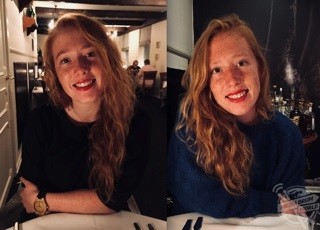
Rikke says that her knowledge of an animal’s anatomy from working as a vet nurse has grown her passion for hunting and interest in finding out what organs the bullet of their rifle went through. They believe that their hobby has strengthened their friendship and that being self-sufficient in cooking meat that they have hunted themselves is a ‘gratifying’ experience.
While they have received a lot of positive feedback from their Instagram followers regarding their hunting lifestyle, they have also been on the receiving end of some negative comments. Despite the messages they get, they insist that they ‘don’t really care’. Even though they admit that they feel remorse over the animals they kill, they believe that they’re doing the world a favour.
“I have always been passionate about dogs. I love training them to hunt and learning to understand their language and for me, I love seeing my own dogs work,” Rikke said.
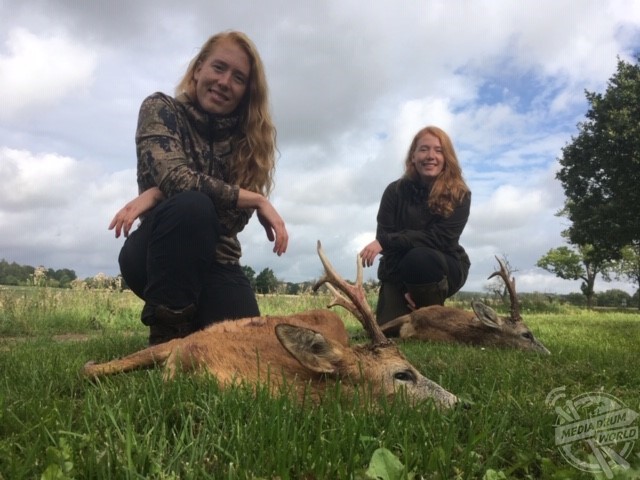
“When I shot my first pheasant, she finished our work by carrying it home to me. So, the teamwork inspired me every day when we were out hunting.
“Since I could walk, I’ve worked with hunting dogs, and the past five years I have been hunting with my own rifle and shotgun.
“For me hunting is a lifestyle – I live and breathe for nature, and to live and to provide myself through hunting and what nature can provide us with. It brings us closer to our ancestors.
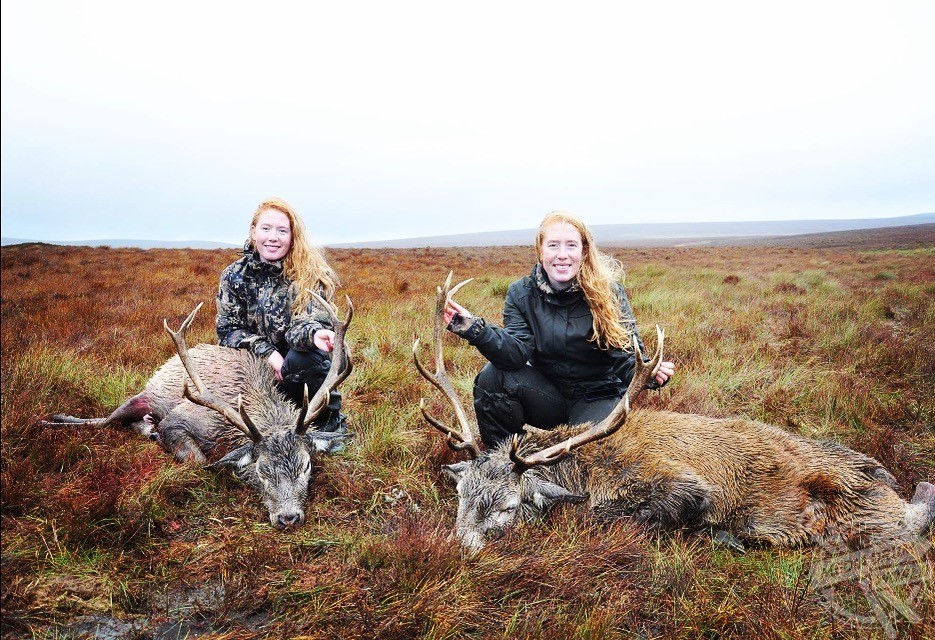
“Many people think it’s all about killing, when they think about hunting. But there are so many preparations before, during and after the hunt.
“We respect all wildlife and animals, even though we go hunting. We do not harvest wildlife, we kill and eat them, but we respect it.
“Without wildlife in our world, we would have nothing. So every time we kill, we say ‘thank you’ for the opportunity.
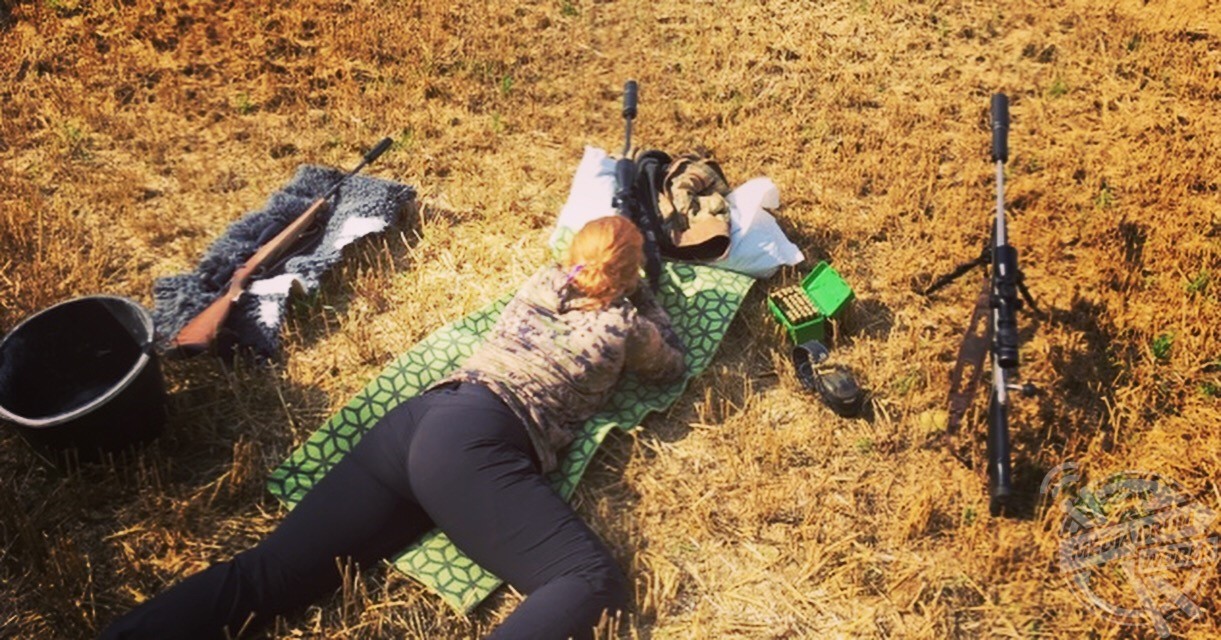
“A solid plan for how to handle your deer after you shoot it is essential if you want to maximise the quality of the venison from your kill.
“First part of the hunt is to find the animal. Believe it or not, but sometimes it’s difficult to figure out where it was hit. When you find the animal, the field dressing starts.
“I work as a veterinary nurse, and anatomy is a big part of my job, so to find out what organs the bullet went through is really interesting.
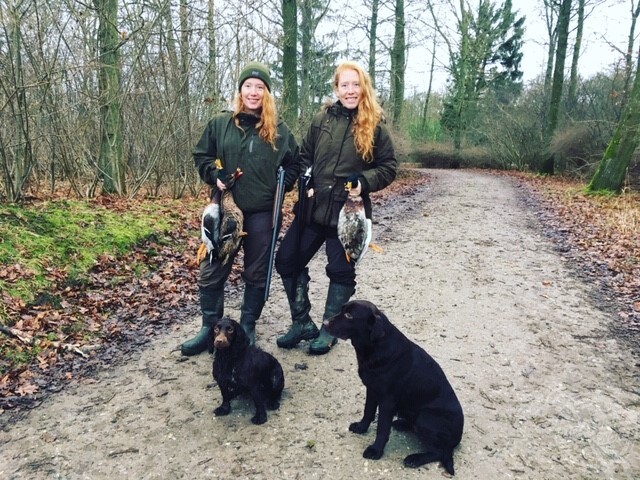
“Field dressing should be done immediately after killing the deer; you should do the job quickly and precisely. The most important thing is to avoid puncturing any of the animal’s organs, when you cut it open.
“If you do puncture the stomach or bladder, it can result in a tainting of the meat and adversely affect the flavour.
“Then you remove the internal organs and as much of the windpipe as is possible. During this process, try to minimize any dirt or fur getting inside the deer.
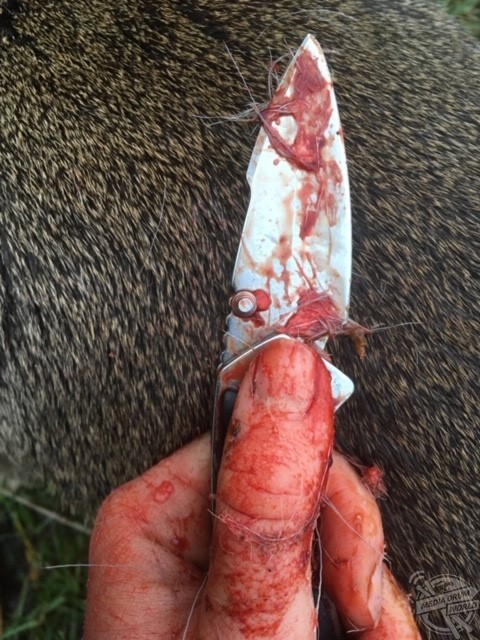
“It was a great memory to see my twin sister hunt her first red stag in the Scottish Highlands. The glowing look on her face, when she saw that big animal fall was unforgettable.
“Her smile stretched from ear to ear. Seeing that look made me realise how special these experiences really are and we get to experience it together.
“The thought that we have this passion together is what I love, and it has brought us closer together with our father. To go home with meat you have hunted yourself, and to be so self-sustainable is really satisfying.
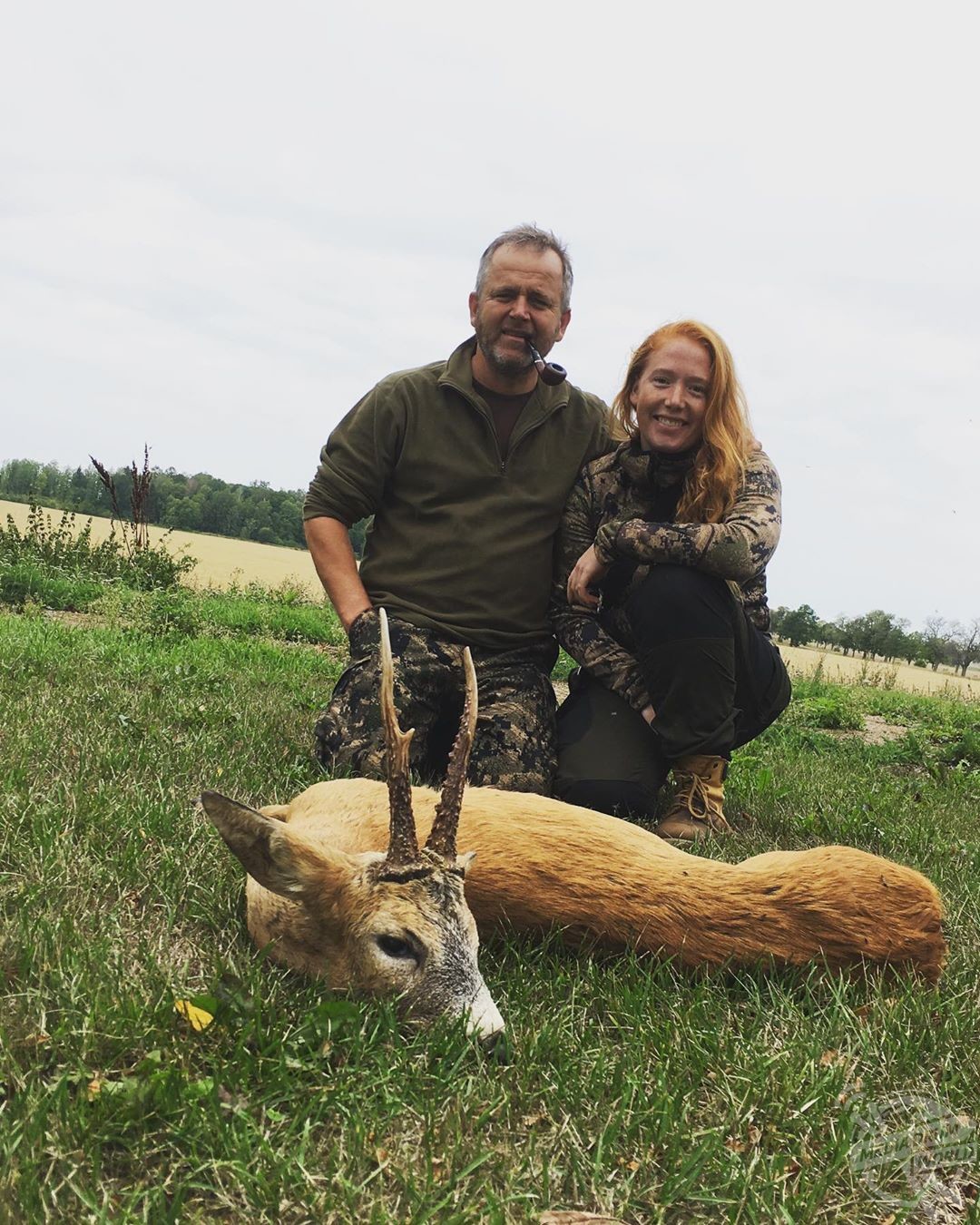
“Food brings people together, and when you have a hunting story behind it – it brings out so much joy and happiness.
“One guy wrote me a message once that I was a ‘killer slut’. Honestly we don’t really care. It’s our way of living.”
The largest animal they have both hunted was a Royal Scottish Red Stag which weighs approximately 15st 10Ib.
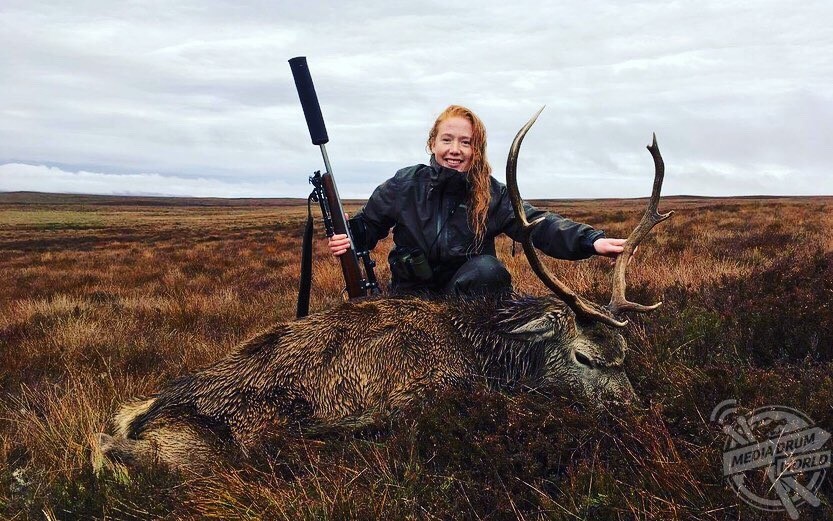
Trine tells of her experiences hunting with her sister and what inspired her to hunt.
“I have always been crawling through mud and bushes since I was ten years old, trying to keep up with all the other beaters,” she said.
“The idea of becoming an element in nature and to go with the movement of the terrain has been a big part of me.
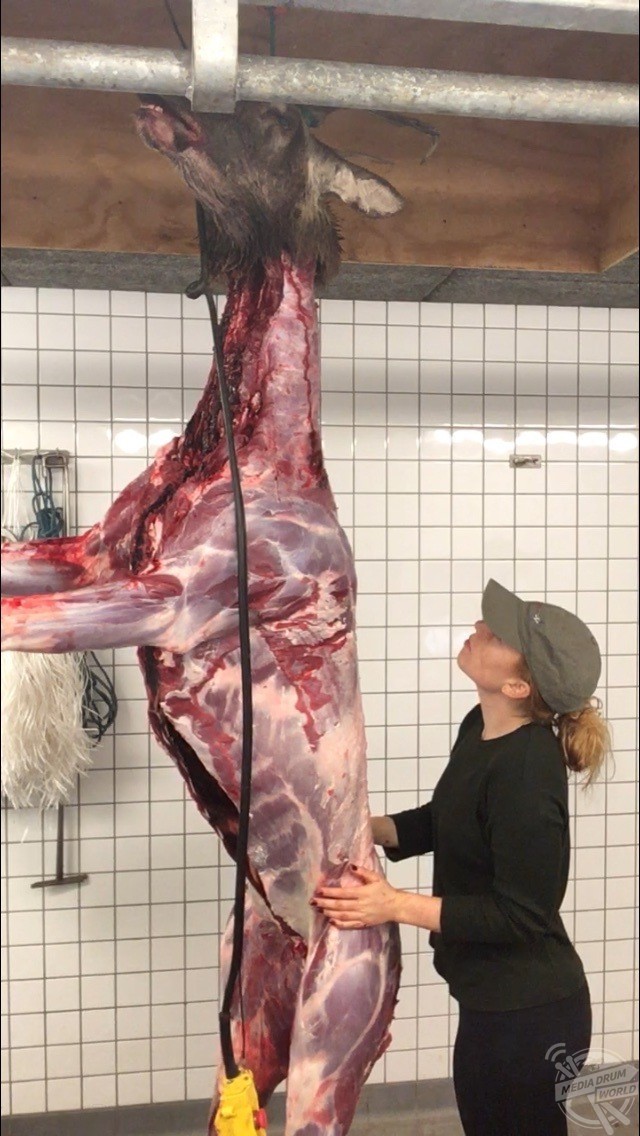
“I joined the military in 2014 and suddenly I found guns and firearms as something I was very good at – so I had to have the hunting licence as well.
“Hunting allows me to get the chance to be a bigger part of the nature, and it gives me the rush of adrenalin when the animal you have been waiting for finally comes along.
“I want to fill my freezer with high-quality game meat, rather than store-bought meat. The thought of providing for myself is satisfying. There is nothing like sitting down with a steak that you procured yourself by hunting.
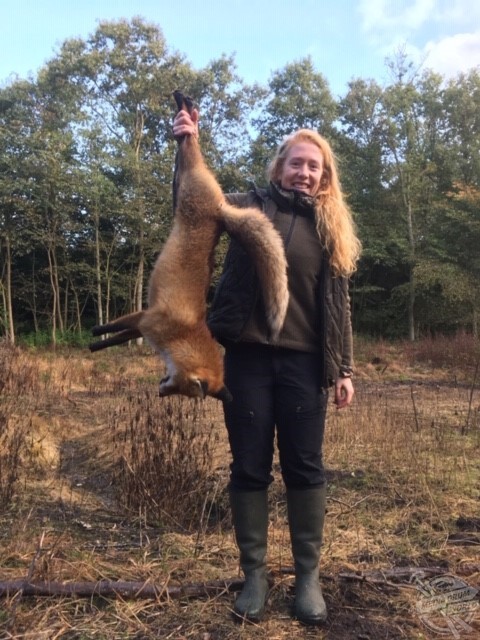
“All my hunts have given me great memories. I find peace in nature and you really become a part of nature, when you go hunting.
“My father, grandfather and all my uncles are hunters, so you could say that hunting has always been a big part of my life. Hunting is all about sharing.
“The best thing with hunting or all kind of adventures is to share it with the ones you love. Rikke and I are so close, and to have this together has brought us even closer.
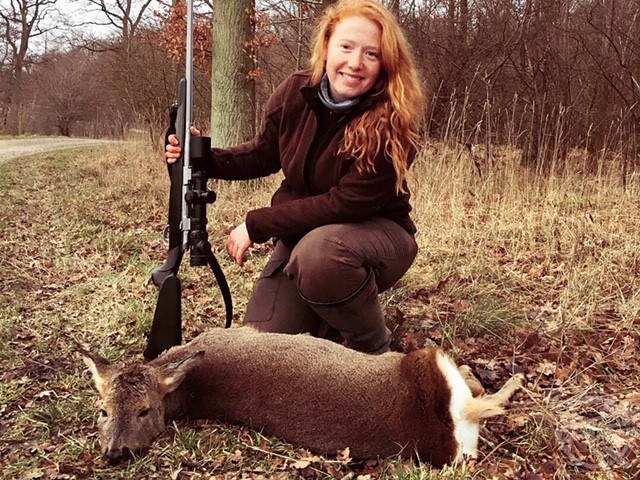
“It’s a lifestyle, and as much I enjoy going hunting and killing an animal myself, I enjoy just as much seeing Rikke do it. It’s an adventure every time we go out.
“A guy said to me once, ‘you may also suffer the same fate as the poor animals you are killing’. But honestly, we’d rather be in the woods than in the line at the grocery store.
“We live from what nature gives us. Humans began hunting thousand years ago. That was when the ice melted away and gave way for humans and other animals to immigrate and bringing home the meat to eat. And 2020 is no difference for us.”
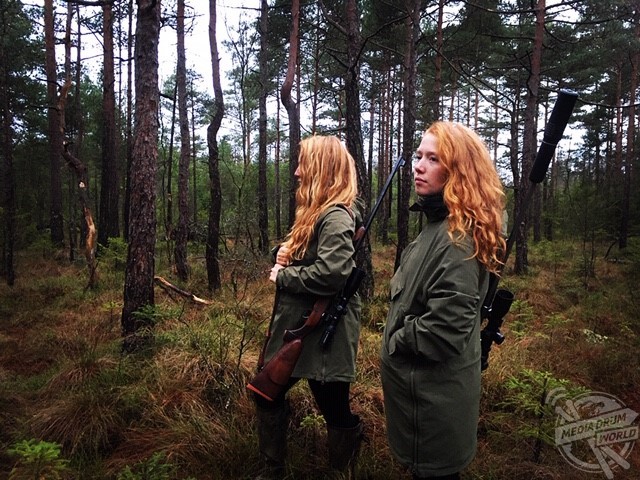
Almost every animal they kill, they eat, except for foxes, which they say they must kill to control the population of the predators.
Rikke explains that they have felt remorse over the animals they’ve hunted.
“Sometimes we go hunting for foxes, including the small ones, and when they are puppies, they remind us of dog puppies. Hunters do have a heart for animals, so of course we sometimes think about why we are doing it,” she said.
“I think all hunters feel remorse over the animals they kill because we do not hate them, we respect them.
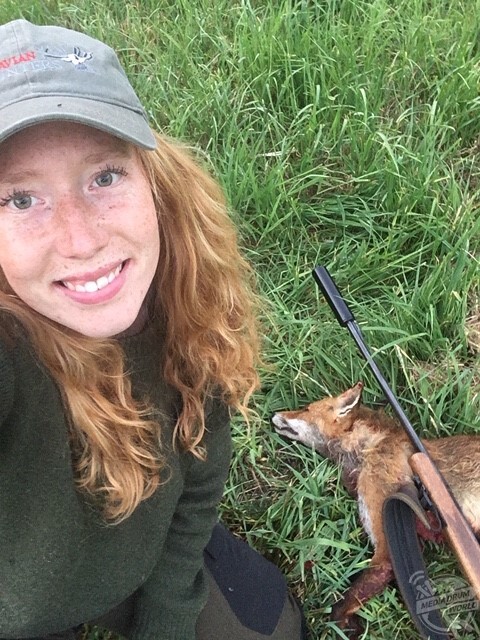
“So why kill a fox, when we don’t eat them? Hunting foxes is a good way of keeping the number of animals under control.
“Foxes are our biggest predator in Denmark – and if we don’t shoot some of them, there will be too many. By the end of the day shooting foxes is a big deal.
“In cities and towns, foxes will eat whatever they can find – thrown away takeaway meals, food left out for cats or birds.
“We don’t need the foxes or any other predators to be too familiar with people, so we need fox hunting – otherwise we will see them visiting children on playgrounds or our dogs in the gardens.
“Hunting is the most self-sustainable you can get; hunting gives you the freshest, healthiest and most ethically killed meat. That’s why we hunt.”






